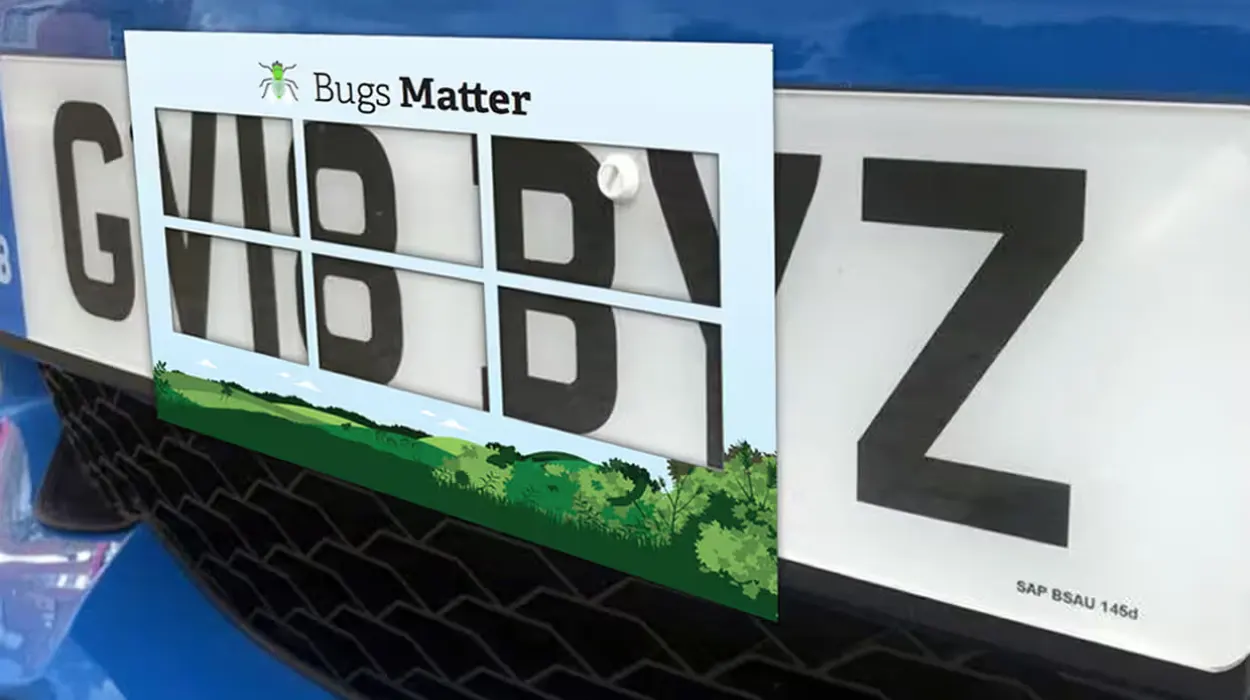UK (Parliament Politics Magazine) – A UK survey revealed a 63% drop in insect splats on cars since 2021, marking a decline in flying insect numbers, with the sharpest fall seen in Scotland at 65%.
As reported by The Guardian, older drivers have long noticed the decline in insect splats on cars, but recent figures show a sharp 63% drop since 2021.
What did the survey reveal about insect decline in UK cars?
According to the Bugs Matter survey, bug splats on citizen scientists’ numberplates fell by 8% from 2023 to 2024, continuing a trend of sharp declines of 44% in 2023 and 28% in 2022.
A review of over 25,000 journeys in Britain since 2021 shows a troubling decline in insect numbers, with a slower rate of decrease in 2024.
New figures show a 65% drop in insect splats in Scotland from 2021 to 2024, contributing to a wider decline across Britain. England saw a 62% drop in insect splats, Wales 64%, and Northern Ireland 55%, with all regions reflecting a concerning trend.
About 10% of the recorded journeys in the Bugs Matter survey came from Openreach engineers, who contributed to the insect data collection.
The Bugs Matter survey will be relaunched for 2025 from May 1 to September 30, with an expansion into the Republic of Ireland for the first time.
What did Lawrence Ball say about the decline in insect numbers?
Lawrence Ball from Kent Wildlife Trust said,
“This huge decrease in insect splats over such a short time is really alarming.”
He added,
“It’s most likely that we are seeing the compounding effects of both a background rate of decline as well as a short-term cycle of decline, perhaps linked to the extreme climate in the UK in recent years.”
What did Andrew Whitehouse say about the decline in insects?
Andrew Whitehouse, of Buglife, stated,
“The latest Bugs Matter data suggests that the abundance of flying insects in our countryside has fallen again. The consequences are potentially far-reaching, not only impacting the health of the natural world, but affecting so many of the essential services that nature provides for us.”
He added,
“Human activities continue to have a huge impact on nature, habitat loss and damage, pesticide use, pollution, and climate change all contribute to the decline in insects. Society must heed the warning signs of ecological collapse, and take urgent action to restore nature.”
Decline in insect numbers
- Deforestation, urbanization, and farming reduce insect homes.
- Chemicals kill beneficial insects such as bees and butterflies.
- Light, water, and soil pollution disrupt insect survival.
- Increasing temps and weather shifts harm insect life cycles.
Long-term consequences of insect decline
- Insects are pollinators and decomposers; their decline disrupts food chains.
- 75% of crops depend on pollinators; reduced yields could worsen global hunger.
- Birds, reptiles, and mammals that rely on insects for food face starvation and population drops.
- Pollination-dependent industries could lose billions yearly.
- Some insects control pests their decline may increase vector-borne diseases.


